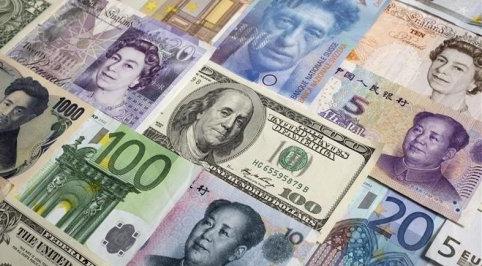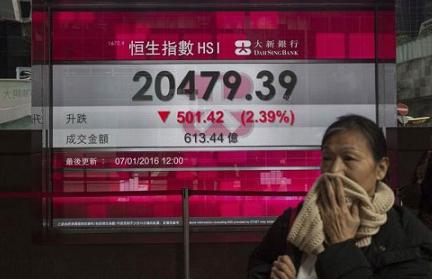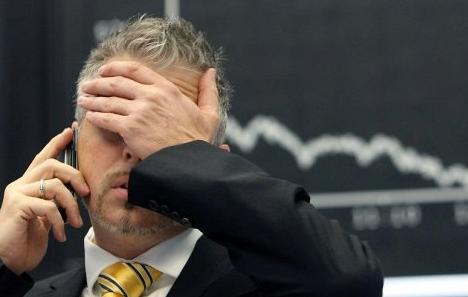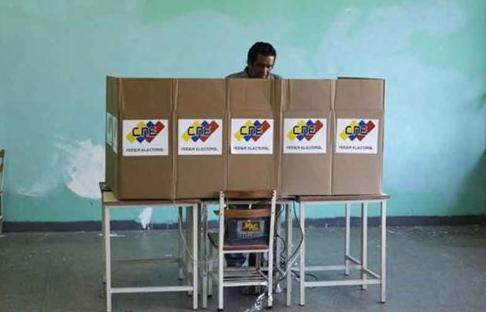World economic crisis
It’s not "economic notions" ... It’s the capitalist crisis
10/09/2011
After the risk rating agency Standard & Poor’s demoted the US public debt and amidst the continued free fall of all the world’s stock exchanges, the neo-Keynesians and Nobel laureates in economics, Joseph Stiglitz and Paul Krugman, began a crusade, maintaining that the problem is not fundamentally in economics, but in "economic notions" and in the "far right." "The bursting of a bubble led to a massive Keynesian stimulus that avoided a much more profound recession, but it also drove big budget deficits," says Stiglitz (Clarín, August 6). "The US budget deficit is, after all, mainly the result of the economic crisis that followed the 2008 financial crisis," says Krugman (The New York Times, August 8). However ... the crisis is fundamentally of "economic notions," as Stiglitz says, or provoked by the "far right," as Krugman says, because the problem would be that "mistaken economic notions on both sides of the Atlantic have been mutually reinforcing each other ..." (Stiglitz), or that the problems of the United States "are almost in their totality ... caused by the growth of an extreme right wing ready to create several crises instead of giving an inch in their demands." What Obama’s critics on the left, up to now, mean is the real danger does not come from the profound structural tendencies of the capitalist economy that caused the 2007-2008 crisis, but the growing risk that the central governments (which initially acted with relatively coordinated measures to contain the crisis) will withdraw the stimuli, causing a situation similar to that which was unleashed in the US in 1937, after Roosevelt’s withdrawal of the government intervention measures .
What Stiglitz and Krugman leave out
The drama of the US and European economies is very different from the one that both academics are putting forward. The problem is that the most enormous government interventions in the history of world capitalism made possible only a weak recuperation of the economies of the central countries. In the case of the United States, with more than 3 billion dollars in bailouts that raised the public debt from 64.4% of GDP at the end of 2007 to a little more than 100% of GDP currently (its highest level since the end of the Second World War), it hardly achieved a level of growth that compensate for the cumulative drop since 2008. Taking the year 2007 as a base of 100, at the end of 2009, the US economy stood at 96.186 points, which means a cumulative drop of 3.8% (based on updated data from the US Bureau of Economic Analysis). If one bears in mind the fact that GDP grew by 3% during 2010, and by around 0.8% during the first two quarters of 2011, that would hardly manage to make up for the drop, while unemployment is at 9.2%, that is, five points higher than in 2007, when the first symptoms of the recession returned. Therefore, the "economic notions" that Stiglitz and Krugman are defending as a "lesser evil," with criticisms, obviously, and suggesting some more radical measure, like increasing taxes on the rich, only managed to contain the bank failures and partially fix the credit chain, which allowed capital to use the advantages of a weak recovery to make profits that in the first quarter of 2011 proved to be 22% higher than those of the final quarter of 2007 (Catherine Rampell, The Economist, August 8). But they were very far from fixing relatively stable dynamics of investment (capital accumulation), of growth of employment and consumption, which again fell for the first time in 2 years, before the economy finished recovering what it had lost.
The problem is not debt, it’s the recession
Krugman is right when he points out that the big problem of the United States does not lie in budget deficits, and that if the economy were going the right way, the debt ought not to be a big problem. That is true, but only on condition that "the economy was going the right way," something that is not happening. The problem is that government intervention and indebtedness only made it possible to get the economy temporarily out of the recession with which debt is exploding, now, as a problem in itself, and the "economic notions" that both economists defend (we emphasize, as a "lesser evil") are seriously debated as to their effectiveness. The chance of the United States going into debt is connected to its role in the world, a matter closely related to the strength of its economy. The highest rating and "zero risk" of the US debt are based, ultimately, on the confidence the world has in the security that the US offers, on what the rest of the world thinks about the US. The difficulties in recovering the rate of growth of the economy, that are accompanied by persistent unemployment and a decline of US society, go against that "security." This is precisely the limit of the United States, in getting credit extended endlessly. If the US economy appears weak, confidence weakens and debts become more expensive, as the reduction of the rating shows, which in perspective lowers the price of Treasury bonds and increases the interest that must be paid for them. The situation of the economy limits the US’ ability to incur debts (which is why it was not the same thing for the US government to go into debt in the 1930’s, with a debt close to zero and a powerful economy, as it is to do that in 2011). The recession caused a partial destruction of capitals, and the government stimuli (at the same time that they prevented a steeper drop, as Stiglitz points out) helped capital take advantage of that devaluation and of an increase in unemployment that drove a fall in wages, raising the rate of surplus value. The problem is that, as soon as it reaches its previous status, the overaccumulation of capitals again emerges at least with the same force as initially. If the economy fails to achieve its own dynamics, independently of government incentives, the big debt accumulation combines with the signs that show the possible entry into a new phase of recession, a matter that certainly calls into question the government’s capacity to go into debt, preventing the stimuli from being recycled at least with the magnitude and with the power that they did in the first phase. It is a vicious circle, and everything makes one think that the prognosis for the next relapse is more bleak than the previous one.
The Tea Party and European xenophobia
The strengthening of the Tea Party, the ultra-right wing of the Republican Party, is not the present cause of the crisis, but the result of the decline, of the bail-out, with impunity, of the banks and big corporations, of continuing unemployment and the US economy’s extremely weak recovery. The Tea Party wing has its correlate in the profound xenophobic tendencies that are nesting in Europe. The flourishing of these tendencies is, similarly, the result of the policies of containing the crisis that exponentially increased the already huge debts of the countries of the southern euro zone and Ireland. It is the result of the explosion of those debts that led to the brutal austerity plans in economies in a state of recession and with very high unemployment rates, plans dictated by the creditors, Germany and France. It is the result of the hundreds of billions of euros that Germany and France earmarked to save their own banks. The strengthening of the "mistaken economic notions" that "on both sides of the Atlantic have been mutually reinforcing each other ..." is in reality, the byproduct of the failure of the "economic ideas" that Krugman and Stiglitz are now defending. In the final instance, they are a result of the impotence of the government intervention measures assigned to save capital from the crisis that struck as a result of the explosion of the cumulative contradictions during the last three decades of "neoliberalism."
10/08/2011










